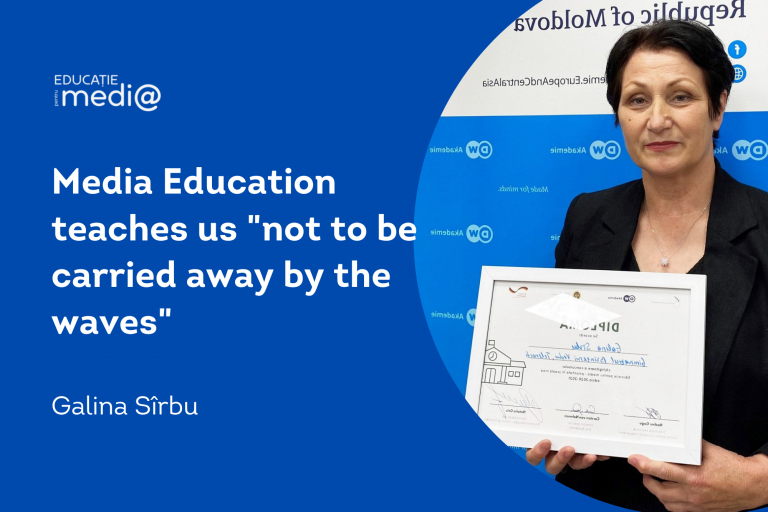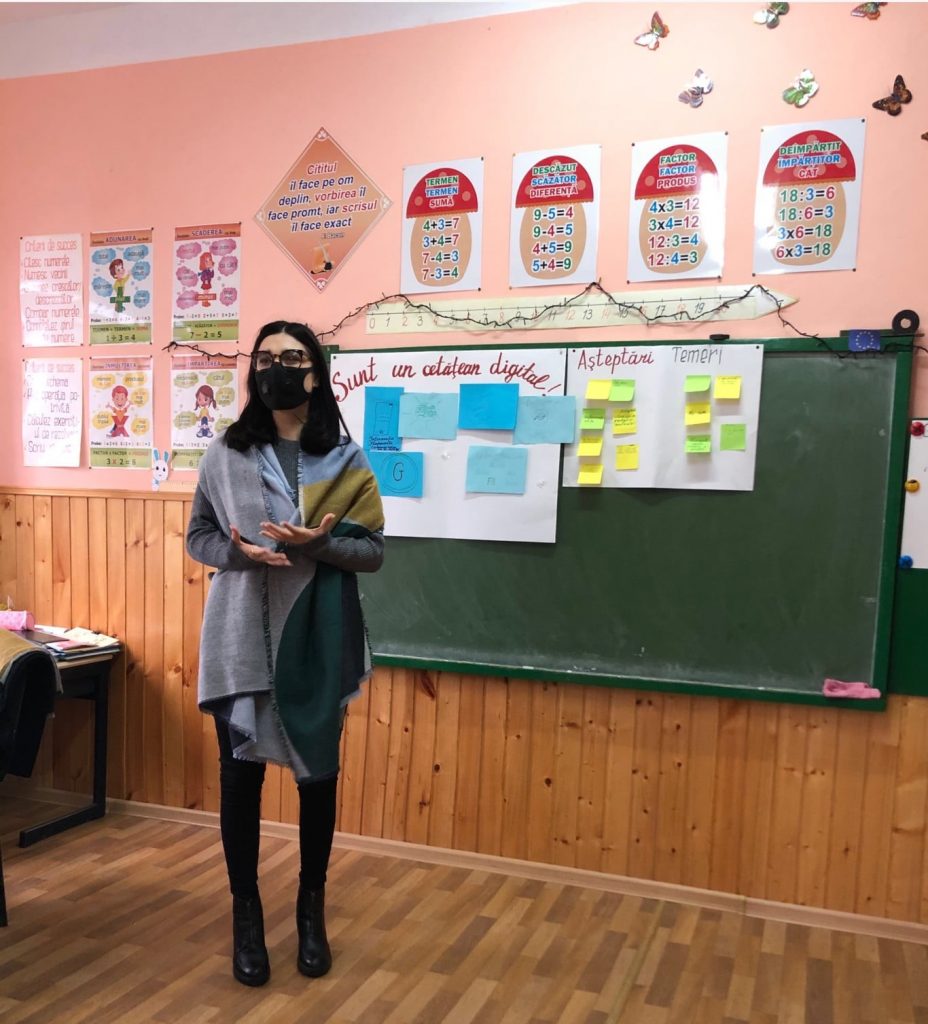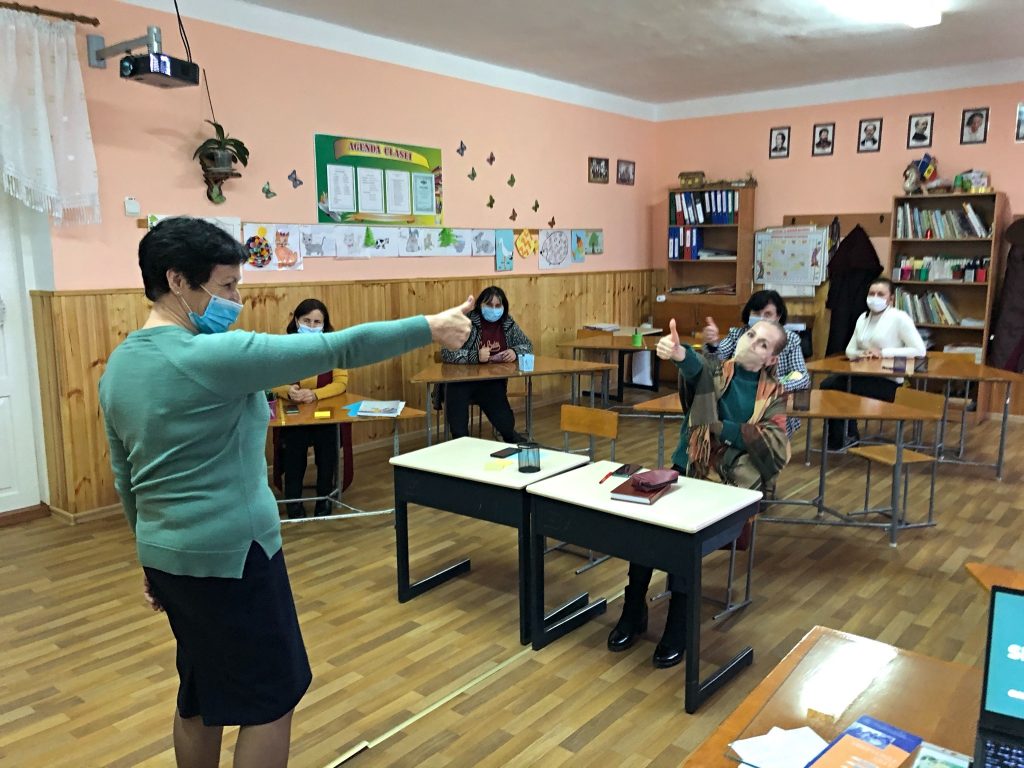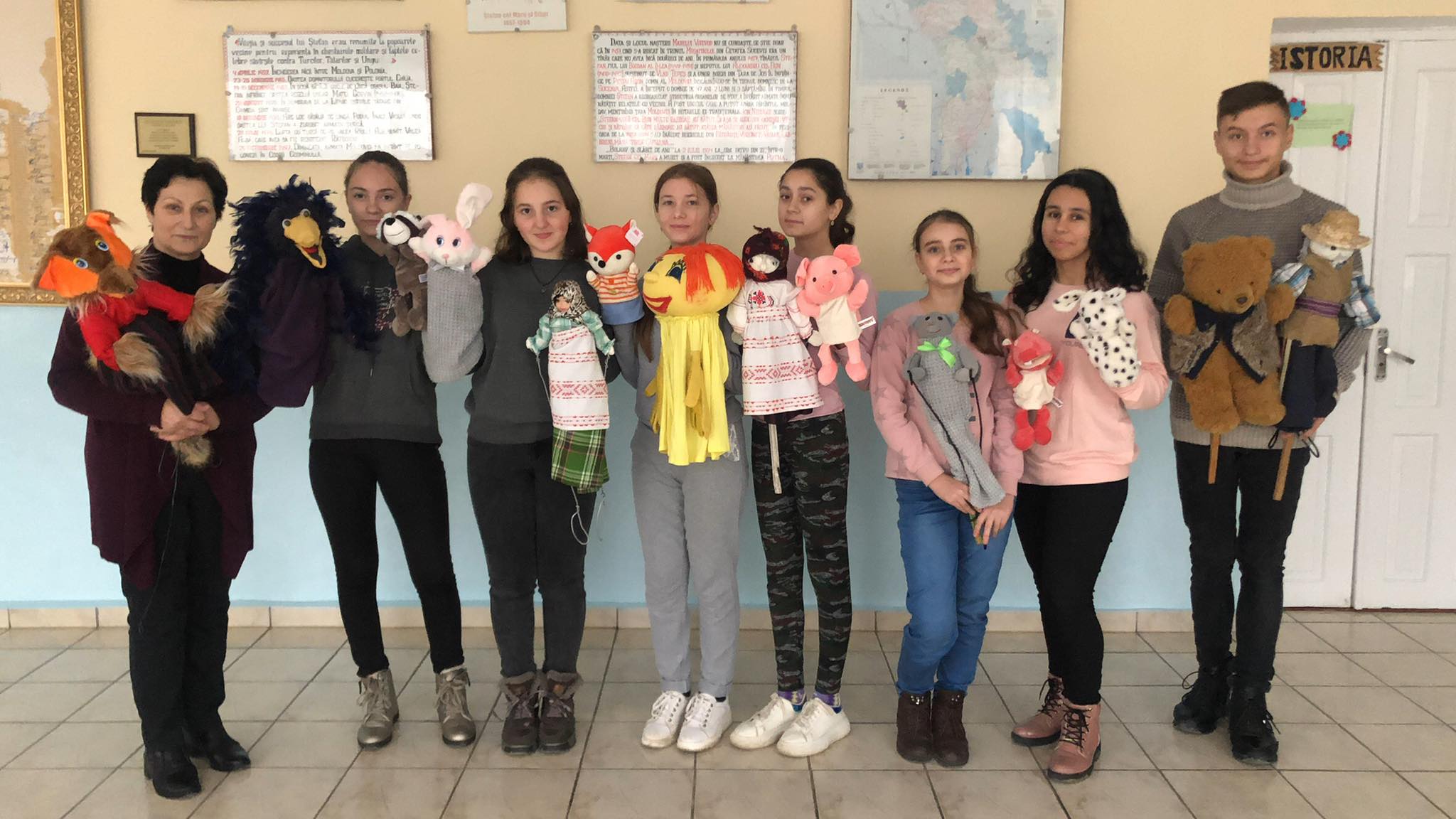Present-day generations of pupils live in a different informational environment which is both enormous and dangerous. Knowing how to “navigate” correctly while living in such an “ocean” requires true proficiency. Developing critical thinking skills, avoiding disinformation, and staying safe in the virtual environment – we have started exploring all these topics together with pupils studying the subject of Media Education.
My experience of interaction with the subject of Media Education started in the late 2019-2020 academic year when over 20 pupils from the 8th grade in Brinzenii Vechi Gymnasium decided to choose that optional course. Their interest could not leave me indifferent; I had to meet my pupils’ expectations, therefore I decided to take part in one of the training programs organized by the Independent Journalism Center. It was a true revelation to discover such a vast field crucial in the 21st century, where true and false information competes.
Bullying, grooming, online harassment, informational fast food, behavioral addiction, fake news, trolls, and misinformation are notions that until recently did not seem to have anything to do with us, yet today, they have become part of the society we live in. Information is power; therefore, together with the pupils, we started analyzing each notion step by step, learning its meaning, and studying the others’ experiences. In the meantime, my belief that Media Education was about the power of information that can uplift or, on the contrary, destroy us, was growing firmer.
Starting from the fact that the issues discussed within the framework of Media Education concern every one of us, I tried to make other teachers and parents interested in the subject, because new technologies had somehow taken us by surprise. In the 21st century, we have found ourselves in an informational “ocean” where you can “get carried away by the waves” unless you have certain fundamental knowledge. In other words, you allow yourself to be influenced by the opinions of people around you without trying to respond in one way or another, making an effort to vindicate your judgment, or asking essential questions such as “who?”, “what?”, “where?”, “when?”, or “why?”.
The activities implemented together with pupils, parents, and teachers, during which we have learned not to trust false news, to inform ourselves correctly, what clickbait websites are, and how to stay protected from criminals, help us all feel safe online and develop a habit of critically analyzing messages transmitted by media institutions.
“During this academic year, our pupils challenged us to teach a Media Education course at our gymnasium. The subject is interesting for the pupils because it is focused on specific learning situations, and involves examples from the press, social media, and school environment. During such lessons, the teacher Galina Sirbu uses various tools contributing to the development of critical thinking. Pupils are taught to use reliable sources while searching for information, to stay cautious online, and at the same time, they are encouraged to become media creators,” Larisa Comerzan, Principal of the Gymnasium, says.
Nowadays, pupils are faced with many risks online. They become vulnerable and are easy “prey” to persons with vile intentions. This is where the mission of Media Education is useful again – helping pupils realize that virtual space is public and their behavior online must be similar to the way they behave offline.
“Media Education as a subject has taught me how to behave online, to analyze information from various sources, and to avoid disinformation and discrimination. I have taught my younger brothers how to choose games correctly and how much time they can stay in front of the screen,” Ionela Sevciuc, 8th-grade pupil, says.
“I have often heard about trolls, online aggression, and harassment, but I have only recently realized that these are not mere words, but more complex notions,” Maria-Magdalena Botnaru, 8th-grade pupil, mentions.
Organizing and conducting various activities dedicated to media literacy has encouraged and motivated pupils’ involvement in various extracurricular activities helping them keep developing their critical thinking. I have also involved the pupils from the Puppet Theater founded and coordinated by me in several projects. Together with the pupils, we invent stories and characters using media literacy notions; afterward, we play a show, film it, and publish a story on social networks. Yes, it is a somewhat difficult and complicated process, but the kids are enthusiastic and eager to dedicate their time to such activities which are both creative and instructive.
“I have really liked the Puppet Theater performances. They are interesting and captivating. I have learned a lot about the media, how and whom I could address for help in case of harassment or receiving unpleasant messages. I would be glad to study this subject in the 8th grade,” Alexandrina Cojocari, 6th-grade pupil, says.
“Unfortunately I did not have an opportunity to study this subject which gives us a chance not to be misinformed. While taking part in the filming at the Puppet Theater, I grasped some of the information I could have studied during this course,” Marian Comerzan, 9th-grade pupil, says.
“Involvement in media and information literacy activities has had a positive impact on me. I have realized that not everything written online is true. I have found out what the signs of disinformation are and how to tell true information from false. In the future, I would like to become a journalist, to bring real news to people’s homes. I am sure that Media Education as a subject greatly contributes to developing pupils’ and parents’ critical attitude,” Virginia Musteata, 9th-grade pupil, says.
Similar stories can be heard at various meetings with pupils and their parents, during the discussions organized at the library, during the kindergarten reading hour, and also at the other events held at Brinzeni Village Cultural Center.
The experience of teaching Media Education has taught us that critical thinking implies being able to cope with disinformation and apply critical analysis instruments properly. Therefore, the habit of staying correctly informed becomes a routine after a while.
✔️ Concursul fotografic 2020 în gimnaziul din Brânzenii Vechii ✔️
În perioada 15 noiembrie – 20 decembrie 2020, în…
Posted by Galina Sîrbu on Wednesday, 30 December 2020
This is a new field of study, and I have to admit I also had a number of issues to discover while teaching my pupils. I kept learning together with them every day; we explored new topics and content, and we became stronger and better prepared for facing the challenges from the virtual environment.
I have reached the age when some would say I could “stop my engines,” but I am convinced these are stereotypes we need to shatter. Media Education is a new beginning in my teaching activity, and I am convinced it is never too late to become more informed: it makes us stronger and more protected.
Author: Galina Sirbu, Russian Language and Literature and Media Education teacher, Brinzenii Vechi Gymnasium, Telenesti District
This article is prepared as part of the project “Media Literacy Innovative Tools for Media-Savvy Citizens” implemented by the Independent Journalism Center with the support of the Embassy of Finland in Bucharest.




